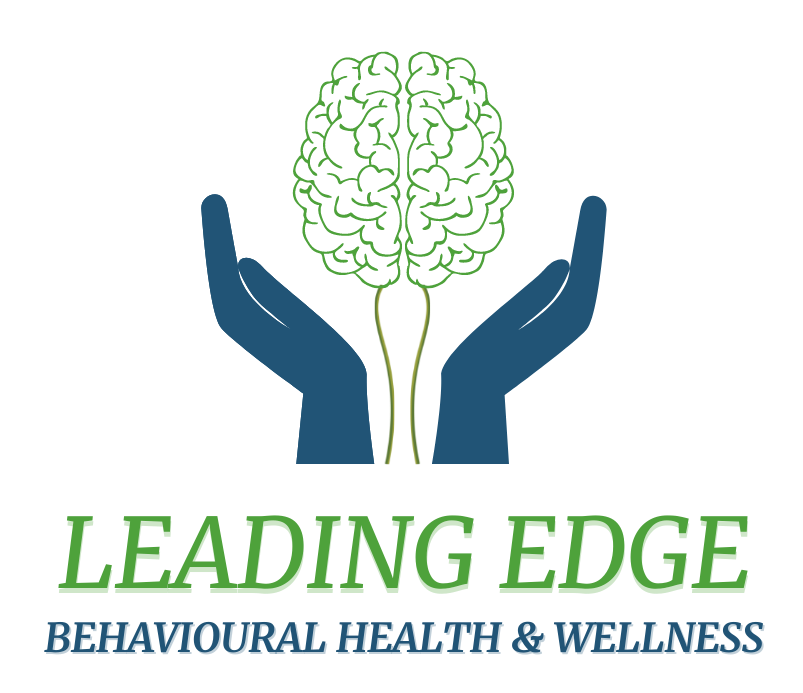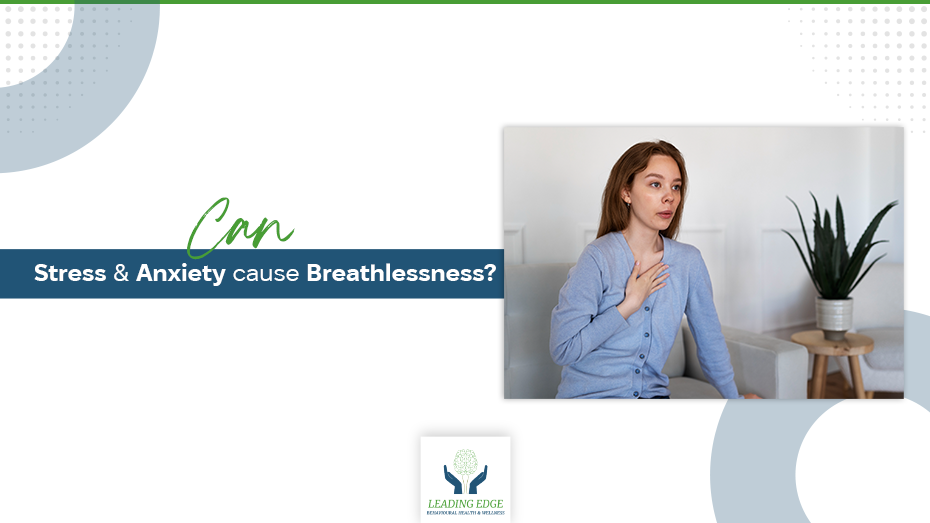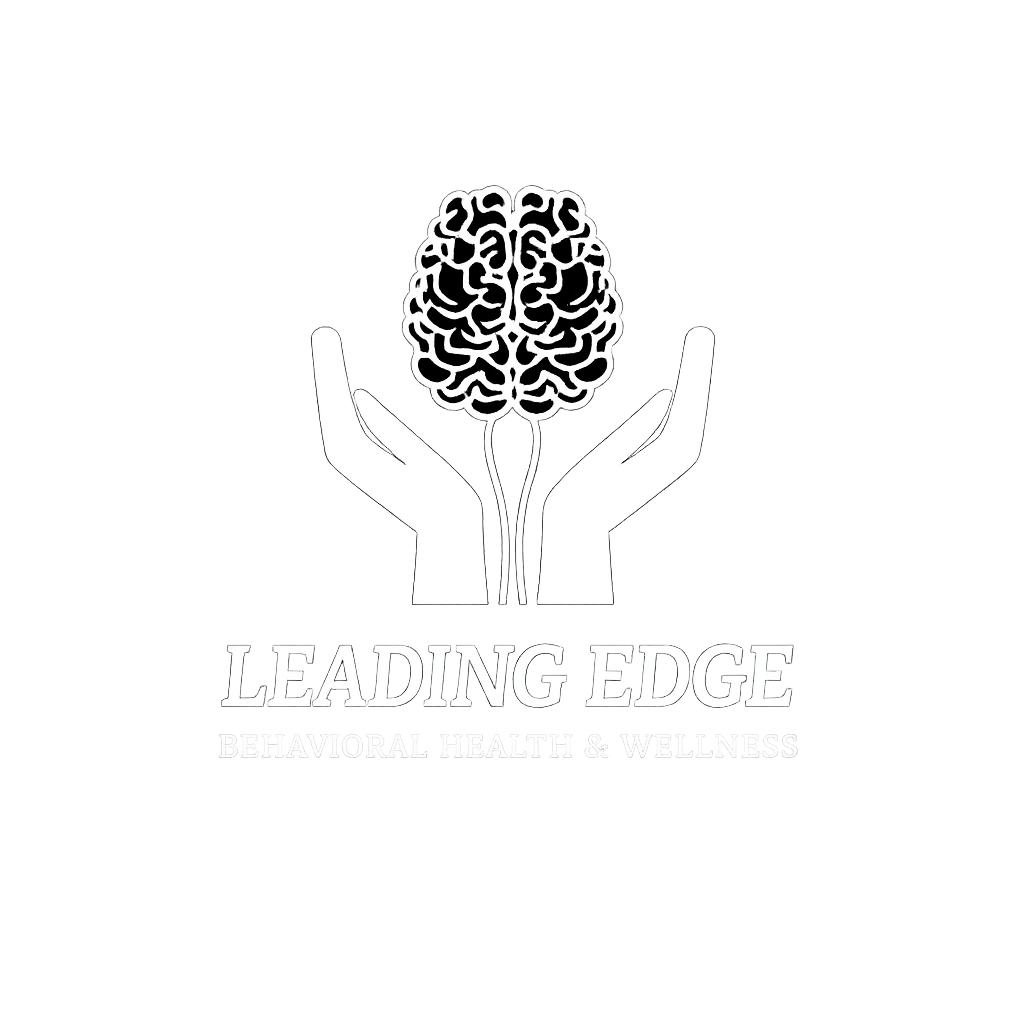Breathing is a thing that is connected automatically, but when stress and anxiety become dominant, it feels almost impossible to breathe easily anymore.
Many people with depression report symptoms like breathlessness, air hunger, and breathholding. These can create a cycle of panic and discomfort.
But can stress and anxiety cause breathlessness? The answer is yes. Let’s examine how anxiety affects breathing, why it happens, and what to do.
If you are stressed or worried and it affects your breathing and your whole life, Leading Edge Behavioral Health is always available.
We provide anxiety therapy, trauma therapy, eating disorder treatment, and several other therapies with our competent therapists. Make an appointment today!
What Is Breathlessness and How Does It Feel?
Shortness of breath refers to the sensation of not obtaining enough air. The sensation creates an inability to breathe while your chest may experience tightness alongside heaviness.
The experience makes some individuals feel as if they inhale like they use a straw. The experience often instils panic, which worsens anxiety in what progressively becomes a problematic pattern to stop.
When you cannot catch your breath, the worry about conditions like heart disease or asthma naturally arises in people. Most instances of shortage of breath stem from distinct root causes.
Can Stress and Anxiety Cause Breathlessness?
The experience of stress together with anxiety leads to shortness of breath. The physical effects of anxiety on the body result in breath complications that create either actual or perceived breath shortages.
Anxious states induce your body to shift into fight or flight mode to prepare for a detected threat. During this state, the body activates stress hormones such as adrenaline and cortisol, making breathing patterns change.
How Does Anxiety Affect Your Breathing?
In the instance of anxiety, when you undergo stress your body’s response that is physiological to it may seriously affect the way you inhale and exhale.
Here’s the lowdown regarding how exactly anxiety can limit your breathing.
-
Shallow and Rapid Breathing
Hyperventilation is a condition that occurs when the body’s pressure of carbon dioxide in the blood decreases too quickly, making you feel woozy, feel woozier and more frantic
-
Irregular Breathing
Some people breathe oddly when nervous. They might stop breathing momentarily and then feel a sudden need for air or a lack of oxygen in their lungs.
-
Tightness in the Chest
Tension might tighten the diaphragm, which may block air travel, and you will feel that you cannot take full and deep breaths.
Common Symptoms of Anxiety-Related Breathlessness
In case you suffer from breathlessness because of anxiety, you can identify the following:
- The feeling of breathing through a straw
- Shortness of breath after meals
- A sensation of not getting enough air
- Tightness in the chest or diaphragm
- Constant awareness of your breathing, making it feel unnatural
- A persistent cough due to anxiety
- A blocked nose, even when you’re not congested
Can You Forget How to Breathe?
Many anxious people wonder, “Is it possible to forget how to breathe?” Our autonomic system controls natural breathing automatically however, excessive focus on breathing functions makes it feel artificial to the body.
The focus on breathing causes a detrimental cycle by which your attention increases, changing breathing patterns.
Air Hunger and Anxiety: Why It Happens
Air hunger and anxiety are intimately interconnected. When people get nervous, their brain draws a line between them and danger. It speeds up the rates of the heart and breathing.
In some instances, the individual taking the body often causes this feeling of getting less and less air, which brings the symptoms into a greater magnitude.
It makes them more annoyed and panicked and, therefore, more challenging to calm down, so they feel like they can’t breathe.
Does Stress Cause Shortness of Breath?
Stress is a cause of shortness of breath. Physical stress symptoms lead to tense muscles combined with rapid heart rate and breathing into shortness of breath.
Stress-related symptoms usually intensify the psychological stress experienced by individuals. The conditions exacerbated by stress become more challenging for people to breathe correctly.
The impact of stress on digestion produces shortness of breath after eating occurs. This condition hinders the experience of normal breathing after consuming food.
Possible Reasons for Anxiety-Induced Breathlessness After Eating
- Bloating: Traps gas in the stomach, pushing against the diaphragm.
- Acid reflux: Causes irritation that makes it feel more challenging to breathe.
- Nervous system response: Anxiety-related digestive issues can lead to breathlessness.
Can Anxiety Cause Coughing?
Coughing from anxiety is another standard sign. Anxiety is the cause of the chest muscles and throat tightening, which is another common anxiety symptom.
An anxiety-related cough can be very persistent and bothersome. It not only makes it difficult to concentrate on the task at hand but can also create a vicious circle of symptoms of coughing and shortness of breath.
Can Anxiety Cause a Blocked Nose?
Nasal congestion develops from anxiety resulting in obstructed airways in the nose. Under conditions of stress, your body releases hormones that result in inflammation.
Nasal passage blockages occur when anxiety makes its appearance. Anxiety produces dry mouth through excessive breathing through your mouth, thereby dehydrating your throat.
How to Know If Shortness of Breath Is Anxiety-Related?
If you are unsure if the difficulty breathing you feel is anxiety-motivated, identify these signs
- You get breathless when you’re under pressure or feel stressed.
- You feel much better when you are not focusing on it.
- It appears and disappears rather than being continuous.
- Physical activity does not cause it.
If the symptoms are the same, anxiety is probably the reason.
Ways to Manage Anxiety-Related Breathlessness
Several methods exist to help you handle daily limitations due to stress and breathlessness when they appear in your life.
-
Practice Deep Breathing
Deep breathing is known to slow your heart rate and is said to be able to calm down your body. Try this simple exercise:
- Inhale deeply through your nose for four seconds.
- Hold your breath for two seconds.
- Exhale slowly through your mouth for six seconds.
- Repeat for a few minutes.
-
Relax Your Muscles
Feeling tension in your muscles could lead to a perception of breathing difficulty. Do progressive muscle relaxation and tighten each muscle group in your body first before releasing each one of them in sequence
-
Distract Your Mind
If you can’t stop thinking about your breathing, consider doing activities that may help you get through this, such as reading, puzzles, or music.
-
Stay Active
Through exercise, people, from kids to seniors, can manage their stress and improve their breathing capabilities at the same time.
Walking together with stretching exercises and practicing yoga provides advantages for your health because they are gentle.
-
Seek Professional Help
You should consult with both health professionals as well as therapists whenever breathlessness from anxiety persists.
Medical professionals use cognitive behavioral therapy as a practical approach to treat anxiety symptoms.
Conclusion
Can stress and anxiety cause breathlessness? Yes, they can. Breathing adjustments caused by stress and anxiety might lead people to feel they lack sufficient air even when they do not.
People experience fright when their breathing changes, but they have multiple ways to find assistance. Relaxation methods help you control your breathing to bring about emotional relief.
You should consult with a doctor to find solutions when breathing issues persist.
FAQs
Can stress cause shortness of breath after eating?
Following stomach intake, stress tends to aggravate respiratory restriction symptoms. The symptoms stem either from digestive problems, which result from anxiety or acid reflux, together with bloating.
How long does anxiety-induced breathlessness last?
The period is not fixed. Someone may have it for a few minutes, while others may be in that state for longer. Working on your anxiety can alleviate the signs early.
When should I see a doctor?
If your air hunger is acute, prolonged, or kisses chest aches, giddiness, and other sensitivities, you should consult a physician straightway.



